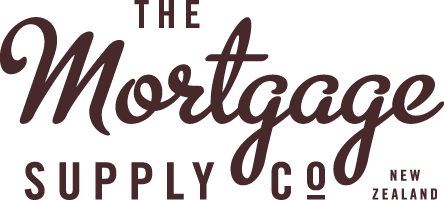
If you are considering buying a house it could be worth setting up a trust to protect your investment. Whatever your circumstances, age or intentions for your assets, it is important you have the best support and information to make sure your property is protected. It may seem tricky and confusing to know where to begin if you are wanting to buy a house and set up a trust but fear not - we've teamed up with GM LEGAL to help to get you going.
So what exactly is a trust?
The main purpose of a trust is to protect and ensure the security of your assets, such as retirement funds, property, businesses, heirlooms and savings. Trusts are legally binding and are usually put in place to ensure security, should a life changing event occur - such as death, marriage or divorce etc. If a trust is maintained and kept up to date, your assets will remain safe and secure.
How does it work?
The person who sets up a trust is called the “settlor'' who will then legally transfer the ownership of their assets into a trust. The settlor then selects “trustees” who are a group of people that oversee developments and progressions within a trust. A trustee could be anyone, such as a family member, a close acquaintance, an accountant or a lawyer or even a trustee corporation. The “beneficiaries” are the people or entities who have or will benefit from the trust, who are also selected by the settlor. Beneficiaries can be people who are alive or unnamed people who have not yet been born, such as a settler’s children or grandchildren.
What’s the difference between a will and a trust?
Whilst a ‘trust’ and a ‘will’ may sound the same, the main difference is when they take effect and swing into action. Although a will is an official document that details your wishes after you die, items and statements laid out can often be contested by family, especially if the will is outdated.
A trust, on the other hand, kicks into action straight away and you can be responsible and in control of your trust whilst you are still alive. It’s highly recommended to regularly update your will and be aware of any changes that may affect you and your assets, especially considering the upcoming changes in the Trust Act 2019. Life is unpredictable so it is important to make sure your trust is kept up to date and you are aware of any changes to ensure your assets are safe and protected.
What are the benefits of setting up a trust?
There are many benefits to setting up a trust, especially if you are thinking about investing in property or buying a house. A few of the benefits include;
- protecting assets (such as family homes),
- succession planning for your assets to go to your desired beneficiaries, such as children or charities,
- protecting the privacy of beneficiaries and their assets,
- preserving wealth within a family or business,
- helping with saving funds for retirement, education or health,
- consolidating assets and simplifying asset management.
Trusts can also be used as a means to earn and generate revenue which becomes the trusts income, such as through property or a business. Initial settlements used to set up trusts are usually not taxed, however once the trust starts earning money (such as a tuition or fees at a private school set up by a trust,) the trust must then follow tax rules.
To read more about the benefits of setting up a trust take a look here.
Which type of trust is right for me?
There are several types of trusts, each focusing on different needs and goals to meet different dynamics, however the structure of most trusts are fundamentally the same. The different types of trusts include:
- Family Trusts: which are usually set up by a married or de facto couple to have the eventual outcome of passing on assets to children or grandchildren. Items held within a family trust are usually property, retirement savings and investments.
- Parallel Trusts: which are technically two trusts and are used when partners have children from previous relationships and have formed new relationships.
- Single Trusts often have just one trustee, and are generally used by people who are starting to acquire assets and are looking to keep investments separate from future partners.
- NextGen Trusts are created by parents for their children, ensuring inheritances are passed down whilst protecting assets from future relationships and/or business partners.
- Business Trusts generally hold shares in a private company where dividends are distributed to beneficiaries. The growth of the company then stays within the Trust, not the settlor.
- Charitable Trusts act as a means for donating funds to chosen causes.
To find out more information on the different types of Trusts and which model might be suitable for your needs, have a look here.
What changes are happening?
On January 30 2021 the trusts act will be changing, affecting both new and existing trusts. It is crucial settlors, trustees and beneficiaries aware of these modifications to ensure the protection of trusts and trust assets.
Greg from GM Legal says as well as modernising trust legislation, the changes to the Trusts Act 2019 will also increase the rights and protections for beneficiaries.
In turn this will also mean more responsibility and prescriptive requirements for trustees on family trusts.
“The changes are likely to make trusts more transparent for beneficiaries but also more intensive to administer for trustees, and could lead to changes both to trust documentation and administration,” says Greg.
There is also a presumption that trustees will be required to give basic trust information to all beneficiaries of Trusts so that those beneficiaries are in a position to enforce their rights, such as:
- notifying beneficiaries of the fact that a person is a beneficiary of the trust
- providing the names and contact details of all trustees,
- giving the times and details of each appointment, removal and retirement of trustees,
- informing beneficiaries of their right to request a copy of the terms of the Trust and Trust information.
Some other modifications to the Trusts Act 2019 will include:
- the introduction of mandatory and default trustee duties,
- increasing the maximum timeframe in which a trust may exist from 80 years to 125 years,
- the introduction of an age of majority of 18 years,
- a requirement for all trustees to retain and have access to core documents associated with the trust,
- the introduction of new requirements of “advisors” to trusts.
To read all of the information on the Trusts Act 2019 and to keep track of the changes that may affect you, take a look here. If you are already involved in a trust, now is a great time to catch up on documentation and update any changes or details. If you are looking at investing in a property or a home and setting up a trust or if you simply have any questions, get in touch with the team at GM LEGAL.
For all of your mortgage, refinancing and property related queries, get in touch with our team at the Mortgage Supply Co. below.










